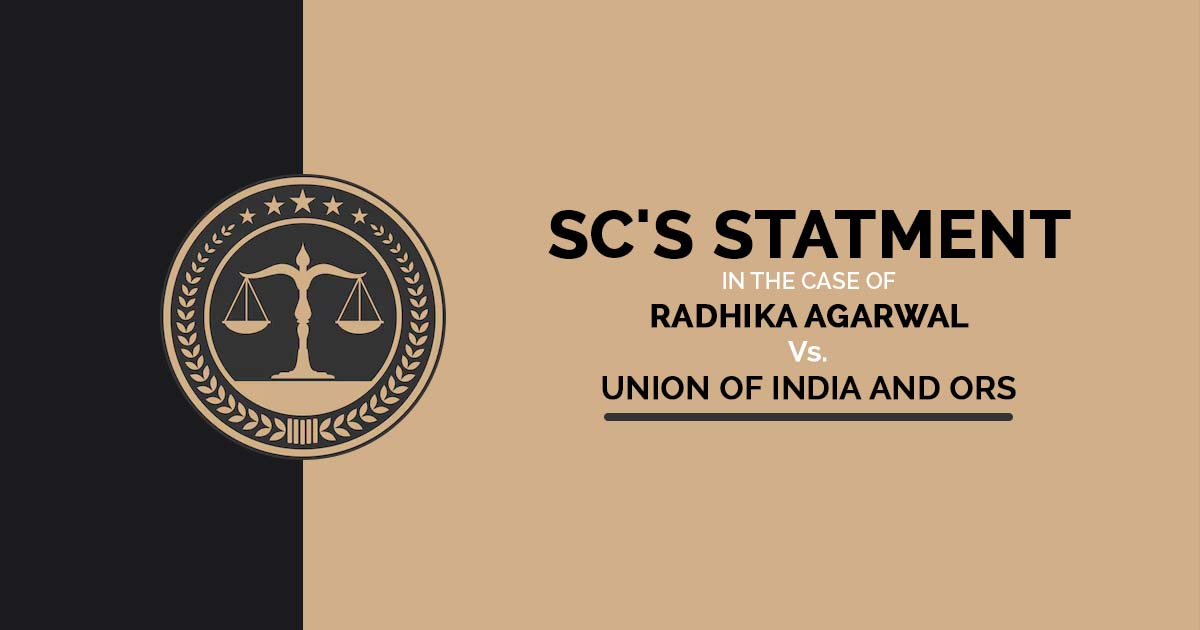
The Supreme Court has asked the centre that during the investigation do not use “threat and coercion” against traders for recovery of Goods and Services Tax (GST) and instead convince them to clear the dues voluntarily.
No provision is there under the law which authorises the authorities to exert force for payment of outstanding dues, A bench of Justices Sanjiv Khanna, MM Sundresh, and Bela M Trivedi, which is inspecting various provisions of the GST Act, quoted.
The bench told Additional Solicitor General SV Raju, appearing for the Centre that there is no power under the Act to push any individual to file the tax liability in investigation. Request your department that the payment must be voluntary and there should not be the use of any force. You must deliver three to four days to the alleged offender to consult, consider, and clear the obligation. It must be voluntary and no threat or pressure should be employed.
Mr Raju does not ask for waiving the possibility of the use of force in the former time however mentioned the major payment during investigation needs to be voluntary.
Read Also: Delhi HC: “Cash” is Not Considered a Type of “Goods”, Can’t Be Seized Under GST
He cited in the day-long hearing that, yes, both ways can be employed however the payment takes place voluntarily or post some days as the alleged offender wishes to consult his advocate for the liability of payment. Yes, certain situations may have been there in the past however that is not cited in law, he added.
The bench quoted that at the time of investigation operations, the authorities practised threat and coercion, distinct applicants alleged.
Related: HC Criticizes GST Authorities for Goods’ Seizure without Jurisdiction
It quoted that we comprehended what is on paper and what exactly took place in reality when an individual is within the investigation. When there is a refusal of payment then you could provisionally attach the properties however you are required to provide a certain time to consult, think, and clear the obligation. You could not put him beneath threat and coercion of arrest.
When Mr Raju cited that multiple times the alleged offenders proceeded with distinct methods to evade the taxes then the bench cited him that “Arrest him but it needs to be under the procedure stated under the law.”
There is a provision for arrest u/s 69 of the GST Act unlike the income tax act, it added.
One of the applicants Senior Advocate Sujit Ghosh, appeared and expressed safeguards furnished under the law are not executed and rather people are under the threat of arrest to pay up.
At the time of the hearing on a batch of 281 petitions which have contested distinct provisions of the GST Act, Customs Act and the Prevention of Money Laundering Act, the bench told Mr Raju that the GST law provides for checks and balances.
The bench told Mr Raju we agree there cannot be a broad-brush approach though we have to ensure that securities are there. There has to be rigorous compliance with Section 69 (power to arrest) and Section 70 (power to summon). When the legislature has legislated security provisions, they ought to be enforced. At the time of summoning or arrest, you have to apply it.
In certain instances, the law officer said that when the goods are transported in oil tankers, auto-rickshaws and various methods are carried out to evade liability.
Appearing for one of the petitioners, Senior advocate Kavin Gulati, cited that in his nearly three-decade career, he had never witnessed as many arrests and confiscations since have happened in the past 5 years under the GST regime.
Thousands of petitions are due in different high courts. I have never seen so many pre-conviction arrests happening in my career which has happened in this GST regime. We have noticed the Income Tax Act and Value Added Tax regime, which was also a multi-point tax regime, but what has occurred under the GST regime is shocking, he added.
Mr Raju interfered, arguing the same is not that the department is arresting every other person which is primarily done in tax fraud cases.
Mr Gulati quoted that in most cases, the officer threatens a person summoned u/s 70 that he will be arrested if no payment is filed.
He added that Show Cause Notices(SCN) are issued by the same officer who records the statements and conducts the adjudication proceedings under the current regime.
There will be a possibility of discrimination if the allegation of the same officers conducting the entire proceedings is true, and it ought to investigate this problem, the bench told Mr Raju.
The hearing has not arrived at any conclusion and will continue on Thursday.
The top court on 2nd May sought the Centre to provide the information for the issuance of the GST notices and arrests performed beneath the provisions of the GST act citing that the same might interpret the law and lay down proper procedures to prevent the harassment of citizens by restraining them of their liberty.
It has raised concern for the obscurity in section 69 of the GST Act which deals with the powers of arrest.
The top court ruled that it shall interpret the law to make liberty stronger, if required but not authorise citizens to be harassed.